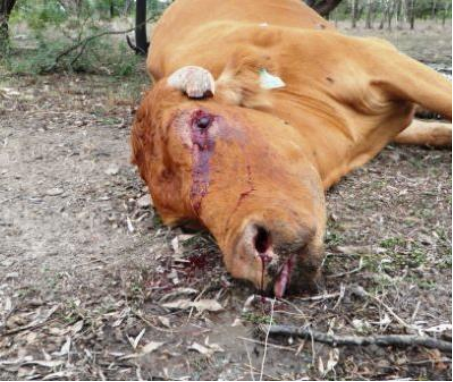Anthrax vaccinations urged in dry conditions
Laura Williams
22 November 2023, 6:44 AM
 Western Plains communities fall right in the high risk area from previous anthrax infections. (NSW DPIE)
Western Plains communities fall right in the high risk area from previous anthrax infections. (NSW DPIE)Farms across the Western Plains form part of a high-risk area for anthrax, causing authorities to urge graziers to vaccinate their sheep and cattle.
In the last 50 years, all NSW cases of the deadly disease have occurred in an area that runs down the centre of the state, as far west as Bourke.
While anthrax doesn’t occur frequently, risk of infection can increase during prolonged dry conditions, where cattle and sheep ingest soil.
Anthrax is caused by the bacterium Bacillus anthracis, the spores of which can remain viable in soil for up to 50 years and up to 200 years in bones of animals that have died of anthrax.
Outbreaks often follow soil disturbance or major weather events such as heavy rain or prolonged drought.
"Vaccination prevents anthrax from occurring and helps break the cycle of spore production,” NSW DPI Animal Biosecurity Manager Elizabeth Braddon said.
"If vaccination is continued over time, spores in the environment will die, reducing the risk of anthrax occurring in the future."

A cow that has died from anthrax. Note blood dripping from eyes, nostrils and mouth. Source: NSW DPI
LLS Spokesperson Emily Stearman said that affected stock often show few or no signs of ill health before they die.
"Farmers should suspect anthrax if animals die suddenly. In many cases there may be no signs and the disease may begin with the sporadic deaths of single animals over a few days before building to dramatic losses in a very short time."
Despite low warning signs, risk of infection increases with low ground cover, earthworks in paddocks, heavy rain causing movement of soil, or contact with infected carcases.
"Farmers can apply to use the vaccine through their LLS district veterinarian and once authorised, they can place an order for the vaccine with their local rural supplier or private veterinarian," Dr Stearman said.
Anthrax affects many livestock species including cattle, sheep, horses, pigs and goats. Dogs can also be infected. It can pass to humans and extreme care needs to be taken if handling animals or carcasses suspected of being infected.
Anthrax is a notifiable disease in NSW, meaning that anyone who suspects anthrax must report it immediately by calling the Emergency Animal Disease Hotline on 1800 675 888.



